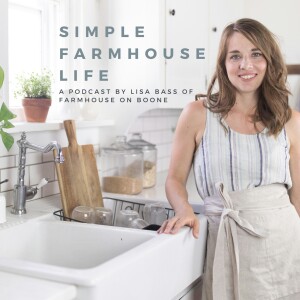Keith: [00:00:00] Keith Ramsey with garden supply company. I've got Jason here today. Jason is our full-time beekeeper who manages the bee department. It helps people out with advice and does all of our pollination and honey chasing that we do up in, up, and down the red.
Jason, now we'll talk about the difference between nukes and packages. What do you think the biggest difference is between nukes and packages? Jason?
Bee Expert: Timing. Timing is the. The advantage of getting an established colony over a loose assortment of bees, which is what a package of bees
Keith: are.
And so packages usually come at what timeframe
Bee Expert: packages are later in the season and are dependent on how the weather gums up through the south because most bees are coming up [00:01:00] from Georgia, and the lady gets them the less time you have to
Keith: build. So if you get a package, you're not. You're likely not going to see honey that year.
Bee Expert: You be hopeful to build out your colony, fill out all the frames with wax, and have some food stores. You'll be supplementing to get
Keith: that. I bought packages initially when I got into beekeeping ten years, 10, 15 years ago. And that was the thing I didn't even know about nukes when I got into it.
I knew I knew there were packages available, and I bought packages. But that was probably my biggest thing I learned down the road was that you could put a nuke in, and so our nukes come, what
Bee Expert: 1st of March into February typically am.
Keith: When you're in and how much, honey, could you harvest from a nuc?
It
Bee Expert: is an established colony. So you've already got five full frames of these in different stages of development, a queen that's accepted and a colony that's actively working. So you put that into your hive, and in a few weeks, your calling will be filling out their box the amount of space they have to live in, and you [00:02:00] can start to gear them up to make honey.
So you can expect to get some honey depending on how well the weather and the season are.
Keith: Sure. And the nuc and the queen, and there are many variables, but. The people look at nucs, and I think sometimes things think they're expensive. Or there's always a question of local nucs over Florida nucs.
I like Florida nucs because they come early. What's your
Bee Expert: thought in general, I'm looking at bees. If I'm looking for something local, I'm probably looking more regional. So I wouldn't buy bees coming out of the Northwest and Northeast. I'd be looking for bees from the south or Southeast.
Sure. They don't necessarily have to be from the town I'm in, just from the general area that they're going to be forging on the same types of plants and have the same kinds of weather in
Keith: general to deal with. So you, Florida bees that can handle humidity and heat, will thrive in North Carolina.
They'll do just fine. Excellent. Versus something that's acclimated to cold weather and,
Bee Expert: general in general, any of the bees you're going to get, be it ones that are from more Northern climate or a Southern climate, they're [00:03:00] probably going to do fine. Anyhow, because bees will still go out and do what bees do forage on flowers.
Sure. It just, and it all depends on your goals as a beekeeper, too. So if you're looking to grow bees or if you're looking to produce honey for the different types of bees, you may. It May make a difference, but healthy bees are what you want in general.
Keith: a healthy full nuc
It just gets you that quick start in the spring. We've started nucs in the last few years. Better than 60% of them, 70% of them produced honey. And, sometimes we'll begin to a nuc in a, in an eight frame or a ten frame box and let it build-out and then put a honey super on it and harvest honey depending on where we are with established hives.
But the other way you can do it is to build bees and build resources.
Bee Expert: There'll be as if you're looking to have some pollinators. B's in general. Getting a nuc allows you to have to get them early enough allows you to take advantage of the full spring seat,
Keith: right?
So you can put them in a hive body, and [00:04:00] then when they fill out, you can go ahead and add another hive body to it. So you have twice as many resources and the ability to split a hive maybe later on.
Bee Expert: Absolutely. Yep. With the package bees, you're limited in time.
So you're going to get those later into this. Those bees are going to have first to accept the queen. That's been given to them to build out wax so that the queen can start laying eggs and start producing more of the colony and filling up enough of that space to reserve enough resources to get through.
Keith: the summer and winter.
So then you're feeding, treating, and managing that hive from, say, April 1st or May 1st. All the way around until May 1st again, right before you're going to be able to harvest any honey.
Bee Expert: Absolutely. So if you're looking at the cost of things and look certainly do are more, slightly more expensive overall, upfront, but overall over the year and trying to make them survive through the following year, you'll probably spend more than.
Providing resources
Keith: for your package, be sure. So you're at Costco buying 25 pound bags of sugar to feed the bees instead of potentially harvesting honey the first year. [00:05:00] W what about the makeup of a package? As far as the workers, or how a package is, a package is just shaken out of a full-size hive,
Bee Expert: right?
So the commercial guys are the producers of packaged bees who will go through their bee yards and select a solid colony and shake quantities of bees out of those hives to provide for the packages. So civil have a large box of many pounds of bees and take a scoop out, weigh them out 2, 3, 3, 2, or three pounds each, dump them into another box, and add a queen who's separated from that colony.
Keith: So you could have all forgers and no nurse bees potentially. Not all, probably, but not a good mix of. Absolutely.
Bee Expert: You're getting a random assortment of bees that are pretty aggressively handled up until the time you put them in your hive. The likelihood of them doing well decreases as.
As all those issues
Keith: occur to him. Sure. The other thing that I think with packages that people don't factor in is [00:06:00] that bees are something that we, it's a difficult scenario because we guarantee plants and stand behind our work and everything that we do at the garden center.
But these are something that comes with no guarantee. It's these fly. They're an insect. They and I've, we've had years where we installed 20 packages trying to build bees. We had extra packages, and we're going to install them in our own Hobbs. And, some of those packages fly away.
So you, you know, you don't know if it's worth it, you know, and you don't see what you're getting, you know, you, uh, sometimes you get crazy BS. Oh, we're going to build out this analogy.
Bee Expert: to
Keith: the end. No, but you could install ten hives and have two of them fly away or have five of them fly away.
So you've, if you have five, five of them fly away, and in one year, it's a 50% increase. Now you're paying 15, 15, $20 more than a nuc would cost. On the flip side, [00:07:00] You could buy a nuc, build out a hive, split it by in the first year, and have two packs. So there's a, there seems like there are so many advantages to buying a nuc.
And when you think about it, i...
More Episodes
More About Bees
 2020-04-14
2020-04-14
Victory Gardens
 2020-04-01
2020-04-01
Container Gardening
 2020-03-17
2020-03-17
In The Garden with Keith Ramsey
 2020-03-02
2020-03-02
In The Garden with Keith Ramsey
 2020-02-17
2020-02-17
NC Soils
 2019-11-14
2019-11-14
Watering
 2019-10-30
2019-10-30
House Plants
 2019-10-16
2019-10-16
Pollinators & Bees
 2019-10-02
2019-10-02
Pansies
 2019-09-18
2019-09-18
Fescue Lawns
 2019-09-04
2019-09-04
Create your
podcast in
minutes
- Full-featured podcast site
- Unlimited storage and bandwidth
- Comprehensive podcast stats
- Distribute to Apple Podcasts, Spotify, and more
- Make money with your podcast
It is Free
You may also like

The Old Man’s Podcast


My Slice of Life


Simple Farmhouse Life


The Beginner’s Garden with Jill McSheehy


Homemaker Chic


- Privacy Policy
- Cookie Policy
- Terms of Use
- Consent Preferences
- Copyright © 2015-2024 Podbean.com



 iOS
iOS Android
Android